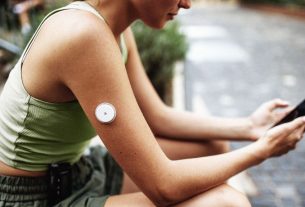It is estimated by researchers that over 152 million individuals will be living with dementia by the year 2050.Researchers are currently exploring innovative methods for detecting Alzheimers disease at an early stage, which is the most prevalent form of dementia. Blood biomarker tests are currently in the developmental phase as a diagnostic tool.Listen carefully.Roche recently showcased findings at the 17th Clinical Trials in Alzheimers Disease congress (CTAD) regarding two novel blood tests for Alzheimers disease that are currently under development.Both tests are said to exhibit ‘excellent accuracy’ in excluding Alzheimer’s pathology for individuals undergoing testing for this form of dementia.Researchers anticipate that the population of individuals affected by dementia will surpass 152 million by 2050. Consequently, significant efforts are underway to explore innovative methods for the early detection of Alzheimer’s disease, the most prevalent type of dementia.An area of interest involves biomarkers – these are specific disease indicators that can be easily measured in the blood through simple blood tests.Roche recently unveiled data at the 17th Clinical Trials in Alzheimers Disease congress (CTAD) regarding two innovative blood tests for Alzheimers disease that are currently being developed.Based on the research findings, both new tests demonstrate a high level of accuracy in excluding Alzheimers disease pathology among individuals undergoing testing for the condition. The outcomes from these trials are still pending publication in a peer-reviewed journal.Margherita Carboni, PhD, Roche Diagnostics Neurology Indication Lead, highlighted to Medical News Today that Alzheimers disease is frequently overlooked in diagnoses. Approximately 75% of individuals may be experiencing symptoms of the condition without recognizing their association with Alzheimer’s disease. It typically takes approximately 2. 8 years for an individual to receive a formal diagnosis of Alzheimer’s disease.Continuing on, Carboni mentioned that the most effective approach to diagnosing Alzheimer’s involves evaluating clinical symptoms and assessing biomarkers.It is essential to identify and comprehensively comprehend the impact of the disease on each individual and determine the most effective treatment for them. However, at present, the diagnosis primarily relies on clinical signs, and the confirmation of biomarkers typically involves invasive procedures,” she further mentioned.





